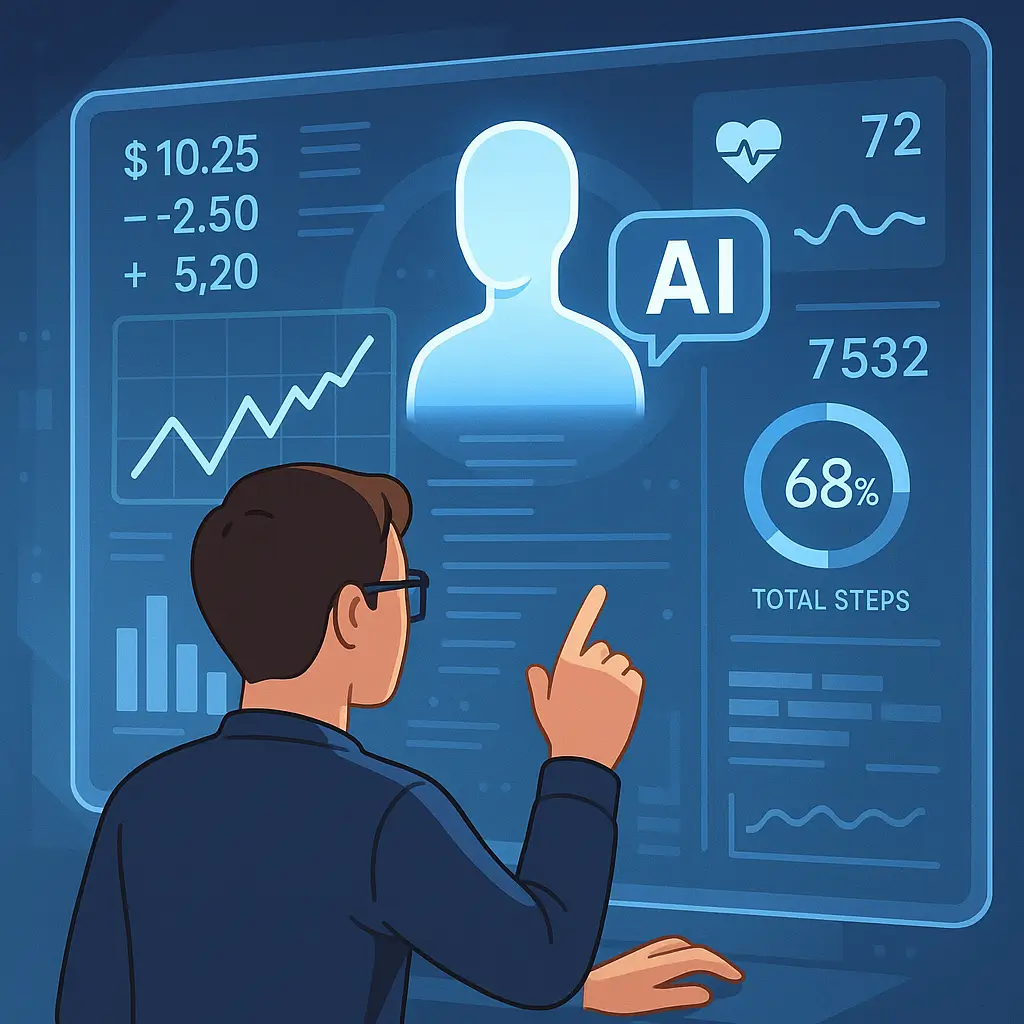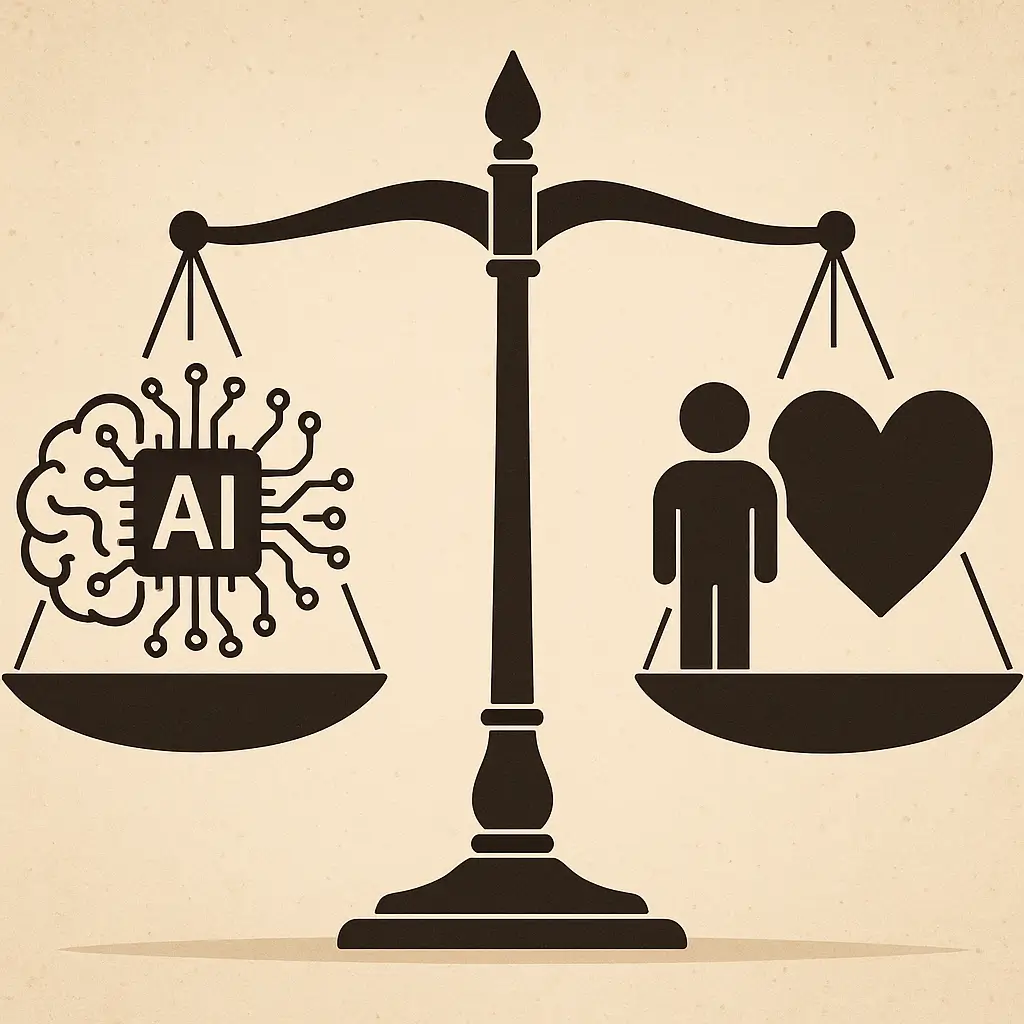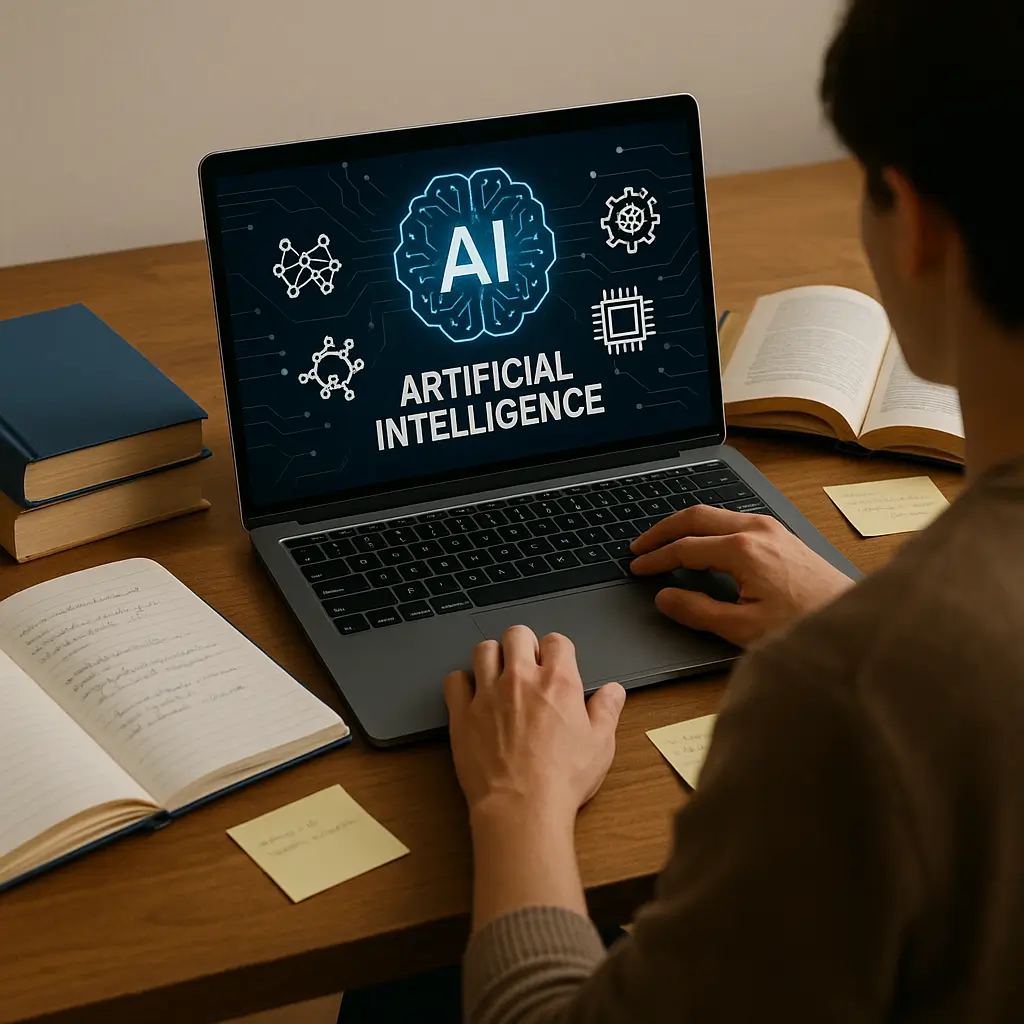Introduction
In recent years, artificial intelligence with advanced reasoning has evolved at a dizzying pace, transforming multiple aspects of our daily lives. From virtual assistants that answer questions to generative tools that create text, images, and music, AI has become an increasingly present ally. However, beyond these well-known applications, this new generation of artificial intelligence with advanced reasoning promises to revolutionize the way we make complex decisions in our personal lives.
Unlike traditional artificial intelligence, which is limited to processing information and generating pattern-based responses, this technology can analyze multiple variables, deduce consequences, and offer much more in-depth personalized recommendations. This advancement opens the door to more meaningful personal growth, allowing us to face complex challenges with greater clarity, confidence, and effectiveness.
Here, we’ll discuss advanced reasoning artificial intelligence, how it can benefit our choices in finance, healthcare, career and emotional management and what obstacles it creates when used in our daily lives. We’ll also find out how to make sure we’re ready to take advantage of this technology’s potential for improving ourselves over the next few years.
What is AI with advanced reasoning?
AI with advanced reasoning represents a significant evolution from the traditional and generative AI we know today. While conventional AI typically relies on pattern recognition and generating responses from large volumes of data, AI with advanced reasoning incorporates human-like cognitive capabilities to analyze, infer, and make complex decisions.
Main features
- Multidimensional analysis capability: This AI can evaluate multiple variables and scenarios simultaneously, considering factors ranging from quantitative data to qualitative or emotional aspects.
- Logical and deductive reasoning: Not only does he answer questions, but he can infer causes, consequences, and relationships between elements, allowing him to offer more in-depth and personalized solutions.
- Contextual learning: Learns and adapts its recommendations based on the user’s specific context, goals, and changing circumstances.
- Autonomy in decision-making: Can execute complex processes without constant supervision, acting as a true “copilot” in personal and professional life.
Differences with generative and traditional AI
Generative AI, such as models that create text, images, or music, relies on learned patterns to produce new content, but it doesn’t necessarily understand the deeper meaning or implications of its responses. Traditional AI, on the other hand, is limited to specific tasks and predefined responses.
In contrast, AI with advanced reasoning combines data processing with cognitive skills that simulate human thought, enabling much richer and more useful interaction for complex decision-making.
Current examples
Although this technology is still under development, existing systems are beginning to demonstrate these capabilities, such as autonomous agents that can manage complex projects, financial analysis platforms that simulate different economic scenarios, or personal assistants that integrate emotional data to offer personalized advice.

Practical applications in personal decision-making
Artificial intelligence with advanced reasoning has enormous potential to transform how we approach complex decisions in our daily lives. Below, we explore some key areas where this technology can make a significant difference:
1. Long-term financial planning
Making sound financial decisions involves analyzing multiple variables: income, expenses, investments, risks, personal goals, and market changes. AI with advanced reasoning can simulate different economic scenarios, assess risks, and offer personalized recommendations to optimize savings, investments, and debt management, adapting to your changing goals and circumstances.
2. Emotional management and conflict resolution
Decisions that involve emotions are often the most difficult. This AI can help you evaluate options by considering not only the facts, but also the potential emotional repercussions for you and the people involved. This way, you can make more balanced and informed decisions, improving your personal relationships and emotional well-being.
3. Career choice and continuing education
In an ever-changing world of work, choosing the right career or deciding which skills to develop is a challenge. Advanced AI can analyze your interests, competencies, market trends, and future opportunities to recommend career and training paths that maximize your growth and personal satisfaction.
4. Health and well-being
Deciding on healthy habits, medical treatments, or lifestyle changes requires considering multiple factors. AI can integrate medical data, habits, medical history, and preferences to offer personalized plans that optimize your physical and mental well-being, making it easier to adhere to healthy choices.
Challenges and ethical considerations
The advancement of artificial intelligence with advanced reasoning opens up great opportunities for personal growth, but also poses significant ethical challenges that cannot be ignored. Integrating these technologies into complex personal decision-making requires a thorough analysis of their implications and limitations.
Responsibility and human autonomy
One of the key challenges is determining who bears responsibility when an AI-assisted decision results in error or harm . As systems become more autonomous, human control over crucial decisions may be lost, raising the need to establish clear accountability and oversight mechanisms to avoid negative consequences .
Biases and discrimination
AI learns from historical data, so it can reproduce and amplify existing biases, undermining the fairness and equity of its recommendations. This can negatively impact sensitive personal decisions, from health to career, if adequate controls aren’t in place to mitigate these biases .
Transparency and explainability
For people to trust AI, it is essential that systems are transparent and their reasoning processes are explainable. Opacity in how recommendations are generated makes critical evaluation and informed decision-making difficult, which can erode trust in these technologies .
Privacy and data protection
Using AI with advanced reasoning involves processing large amounts of sensitive personal data. Ensuring the privacy and security of this information is essential to prevent abuse and protect users’ fundamental rights.
Balance between efficiency and humanity
While AI can increase decision-making efficiency, it’s crucial to maintain empathy, moral judgment, and human understanding as core elements. Technology should be a tool that enhances our autonomy, not replaces it.

How to get ready to use AI along with advanced reasoning in your daily living
The arrival of artificial intelligence with advanced reasoning represents an unprecedented opportunity to enhance our personal growth and improve complex decision-making. However, to take full advantage of these emerging tools, it is essential to prepare properly and develop certain skills and habits.
Basic training in AI concepts and logical reasoning
Understanding the fundamentals of how AI with advanced reasoning works is the first step to using it effectively. This includes becoming familiar with concepts such as reasoning models, machine learning, algorithmic biases, and the limits of the technology. There are accessible courses, webinars, and resources that can help build this knowledge base.
Development of critical thinking and evaluation of recommendations
Although AI can offer sophisticated analysis, it’s essential to maintain a critical attitude toward its suggestions. Learning to evaluate the logic, consistency, and applicability of recommendations will allow you to make more informed decisions and avoid blindly relying on the technology.
Sustain a proper harmony between human insight and the analysis provided by computers
AI should be a tool that complements, not replaces, your judgment. Cultivating intuition, empathy, and reflection remains key for decisions that involve unique values, emotions, and contexts.
Experiment with emerging tools
There are currently models and platforms that incorporate advanced reasoning capabilities, such as recent developments from OpenAI (o1 and o3 models) and Google Gemini 2.5. Testing these technologies in specific areas of your life, such as finance, health, or career development, can help you become familiar with their potential and limitations.
Be attentive to ethics and privacy
When using AI that processes sensitive personal data, it’s important to educate yourself about privacy policies and ensure the tools you choose meet ethical and legal standards. Protecting your information is key to safe and responsible integration.
Conclusion
Artificial intelligence with advanced reasoning is emerging as a revolutionary tool that can profoundly transform the way we make complex personal decisions. Unlike traditional AI, these new technologies offer multidimensional analysis, logical reasoning, and personalized recommendations that can help us better plan our finances, manage emotions, choose careers, or improve our health and well-being.
However, this potential comes with significant ethical and practical challenges, such as the need to preserve our autonomy, avoid algorithmic bias, ensure transparency, and protect our privacy. AI should be seen as a complement that enhances our judgment, not as an absolute substitute.
Preparing to integrate these technologies into our lives involves acquiring basic knowledge about AI, developing critical thinking, and maintaining a healthy balance between human intuition and technological analysis. Only then can we take full advantage of their benefits, making more informed, conscious decisions aligned with our values and goals.
Ultimately, AI with advanced reasoning not only promises to be an invaluable ally for personal growth, but also invites us to reflect on how we want technology to influence our lives. The key will be to use it responsibly, ethically, and always in line with human judgment.

